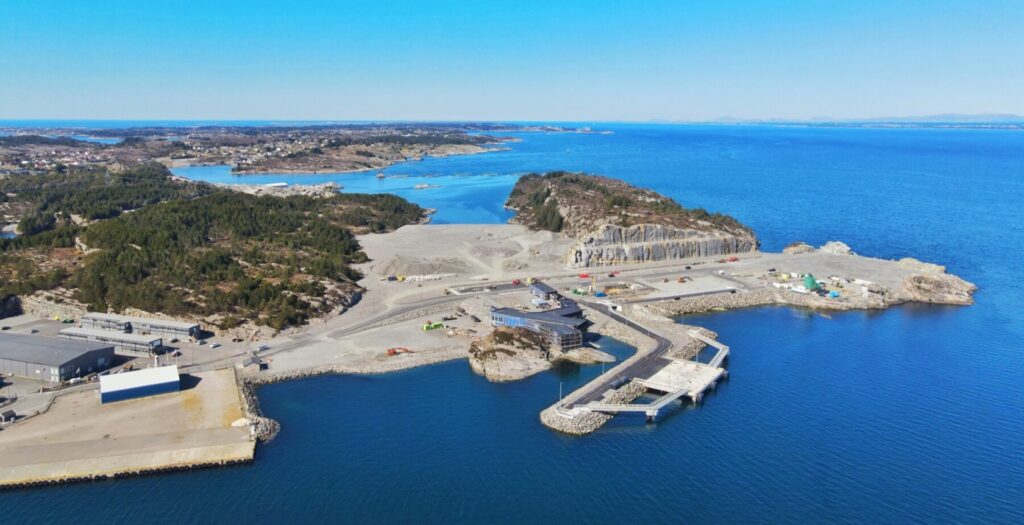Norway took a decisive step forward in the fight against the climate change by inaugurating a monumental underwater vault designed to store carbon dioxide (CO2). This project, called Northern Lightswill be the first to offer a commercial service of CO2 transport and storage emissions on a large scale, which could change the course of industrial emissions in Europe.
DW reported that the ambitious plan is aimed at capturing CO2 emissions generated by the European industriesThe use of these chemicals, such as in cement and steel factories, and injecting them into deep geological deposits beneath the seabed, preventing them from reaching the atmosphere and contributing to the global warming.
An engineering feat under the North Sea
The island of ØygardenThe Norwegian coast, off the Norwegian coast, has witnessed the beginning of a new chapter in the carbon capture and storage (CCS). A key terminal was inaugurated there, whose imposing storage tanks, visible from the coast, will be the first point of transit for the Liquefied CO2.
From this installation, the carbon dioxide will be transported by ship and then piped 2.6 kilometers to the seabed, where it will be permanently stored. The first CO2 injections are expected to begin in 2025, with an initial capacity of 1.5 million tons per year, which could be expanded to five million if demand warrants.
A project driven by energy giants
Northern Lights is a joint venture between three major players in the energy industry: the Norwegian energy company Equinorthe Anglo-Dutch Shell and the French TotalEnergies. Together, they seek to demonstrate that CCS technology is a viable and effective solution for reducing industrial emissions, particularly in difficult sectors. decarbonization such as cement and steel.
"Our first objective is to prove that carbon capture and storage is a functional and sustainable technology," Tim Heijn, the project's CEO, told AFP. "If implemented correctly, it can have a real impact on CO2 reduction and contribute significantly to meeting global climate targets."
Expensive but necessary technology
Although the technology of carbon capture and storage is costly and technically complex, it has been recommended by agencies such as the Intergovernmental Panel on Climate Change (IPCC) and the International Energy Agency (IEA). Both consider it crucial to reduce the industry emissions emissions that would otherwise be difficult to fully decarbonize.
With Northern Lights, Norway is at the forefront of international efforts to curb global warming, offering a concrete solution to a challenge that continues to grow: how to reduce CO2 emissions from the world's most polluting industries.
Source: DW


